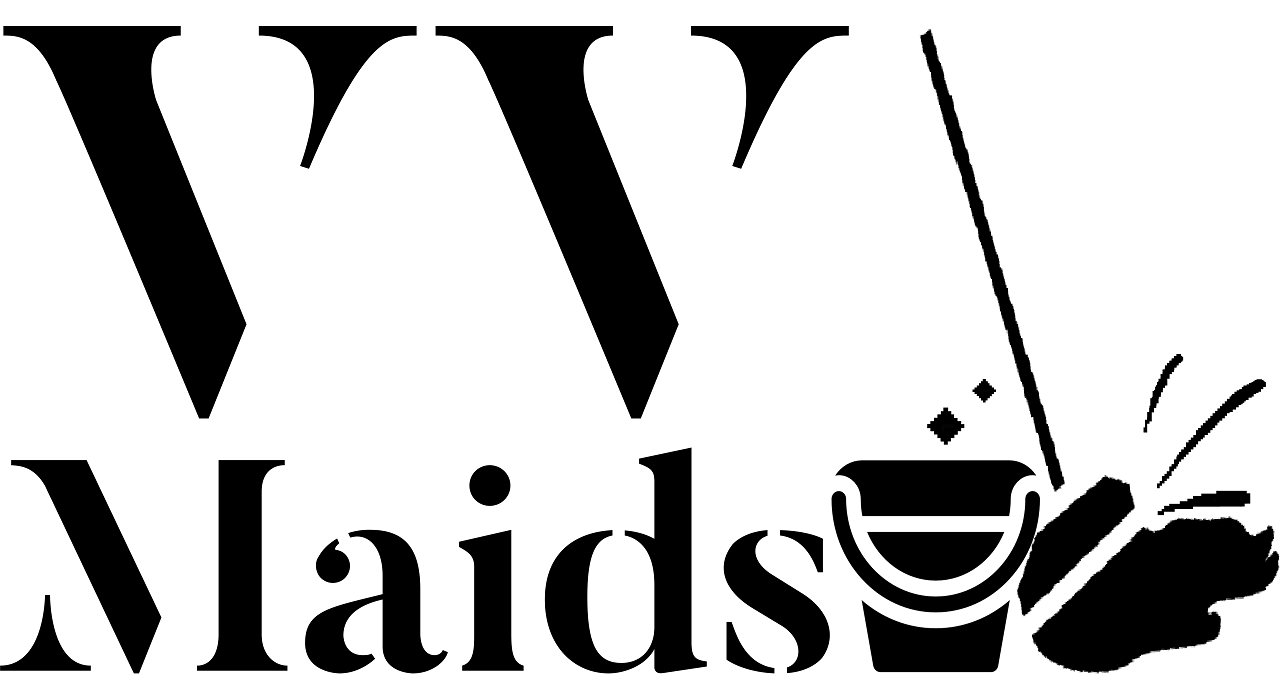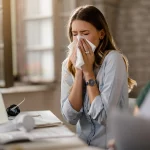For people who suffer from allergies, even staying at home causes significant discomfort during the allergy season. It’s crucial for individuals who go through this problem to either create a safe, comfortable living environment themselves or get help from cleaning services.
In this article, we are going to share some cleaning tips and strategies for you to learn how to allergy-proof your house and prevent its symptoms and their inconveniences, like sneezing and coughing.
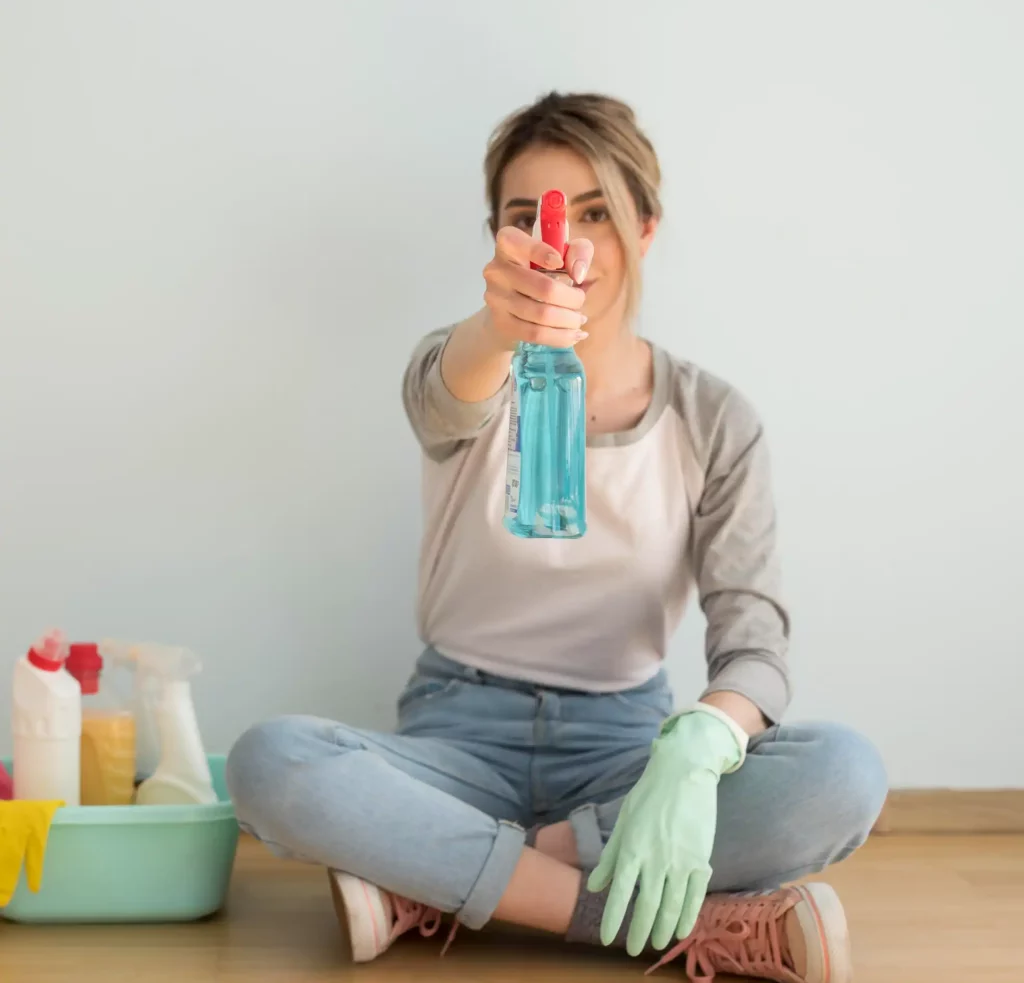
Regular Cleaning Tips
Dusting and Vacuuming Regularly:
Allergy symptoms are brought on by allergens that collect on surfaces and flooring, such as dust mites, pollen, pet dander, and other substances. It is essential to regularly vacuum and dust to get rid of these irritants. When dusting, use a wet microfiber cloth because it effectively collects and holds dust particles. Focus your vacuum cleaner on carpets, rugs, upholstery, and curtains when cleaning.
Launder Bedding Frequently:
Dust mites and pollen, two allergens that can interfere with your sleep and set off allergies, may be present in your mattress. To efficiently eliminate dust mites, wash your linens, pillowcases, and blankets once a week in hot water (130°F or above). To strengthen the barrier against allergens, cover your pillows and mattress with hypoallergenic materials.
Pay Extra Attention to Curtains and Blinds:
Curtains and blinds can gather dust and pollen, so it’s necessary to clean them on a regular basis. Launder machine-washable curtains or use a vacuum cleaner with a brush attachment to remove dust. Wipe off blinds with a microfiber cloth or a duster made exclusively for blinds.
Clean Filters and Air-conditioning Ducts:
Dust and other allergens accumulate over time in air ducts and HVAC filters. Depending on the kind and condition of your filters, clean or replace them every one to three months. Professional air duct cleaning every few years can help remove the allergens that have accumulated in your ventilation system.
Deep-Clean Carpets:
Deep cleaning your carpets is crucial, as they can trap allergens. Make it a practice to deep clean your carpets either monthly or yearly. To effectively eliminate dirt, dust mites, and allergens from the fibers, consider steam cleaning them or hiring professional cleaning services.
Wipe Down Electronics:
To reduce indoor allergens, it is really important to tackle the problem of dust buildup on electronic devices. Use a microfiber cloth or specialized wipes specifically formulated for cleaning electronics to gently remove dust from screens, keyboards, and other surfaces.
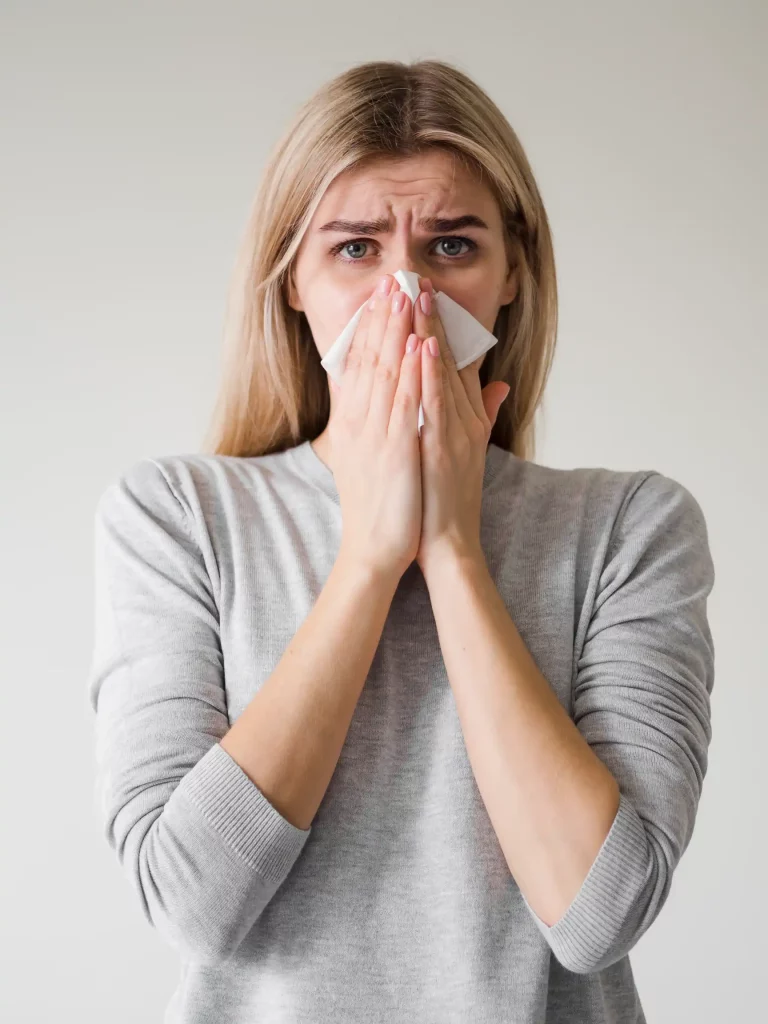
Clean Your Refrigerator’s Coils:
Dirt and debris can build up on the coils at the back of your refrigerator, circulating allergens in the air. To avoid this accumulation, vacuum or dust the coils regularly.
Deep-Clean The Washing Machine:
Mold and mildew grow in your washing machine and move to your clothes, triggering allergies. Run an empty cycle with hot water and vinegar or a washing machine cleanser to remove any accumulation and keep your machine clean.
Wipe Away High-Touch Surfaces:
Wash or wipe down frequently touched surfaces, such as light switches, door handles, and remote controls, to minimize the spread of allergens.
Effective Strategies to Control Allergens at Home
Use Allergy-Friendly Cleaning Products:
You should avoid cleaning products that contain harsh chemicals and strong odors because they might cause allergies and respiratory problems. Choose hypoallergenic, environmentally friendly options, or prepare your own with natural substances such as vinegar, baking soda, and lemon juice. These alternatives clean surfaces effectively without introducing additional irritants or triggers.
Minimize The Impact of Allergenic Substances from Pets:
Pets can introduce allergenic substances such as dander into your house. You will be able to avoid their impact by frequently grooming your pets, including brushing and bathing, to lower the amount of dander they shed. Wash the pet’s bedding on a regular basis, and consider keeping pets out of bedrooms or other allergy-free areas.
Clean up Your Personal Care Products:
Personal care products such as hairbrushes, combs, cosmetic brushes, and shower loofahs can contain allergens. Clean these products frequently by soaking them in warm soapy water or following the manufacturer’s instructions attached.
Change Your Clothes After Outdoor Activities:
When you are outside of the house, allergens which can cause allergic reactions might stick to your clothes. When you come back home, change your clothes and wash them right away to get rid of them.
Use a Shoe-Free System:
Use a shoe-free system. Ask your family members and guests to remove their shoes at the door. It really helps you to keep the floors clean and also avoid bringing in allergens from outside.
Eliminate The Clutter:
Clutter creates places for allergens to hide, so keeping your home organized and clean is vital. Declutter and clean surfaces on a regular schedule; give extra care to shelves, worktops, and underneath furniture. Minimize the presence of items that trap dust, such as stuffed toys, unneeded decorations, and excessive fabric materials.
Keep the Windows Shut:
When it’s pollen season and allergen levels are high outside, make sure to close your doors and windows tightly. This will help keep pollen and other allergens from entering your home.
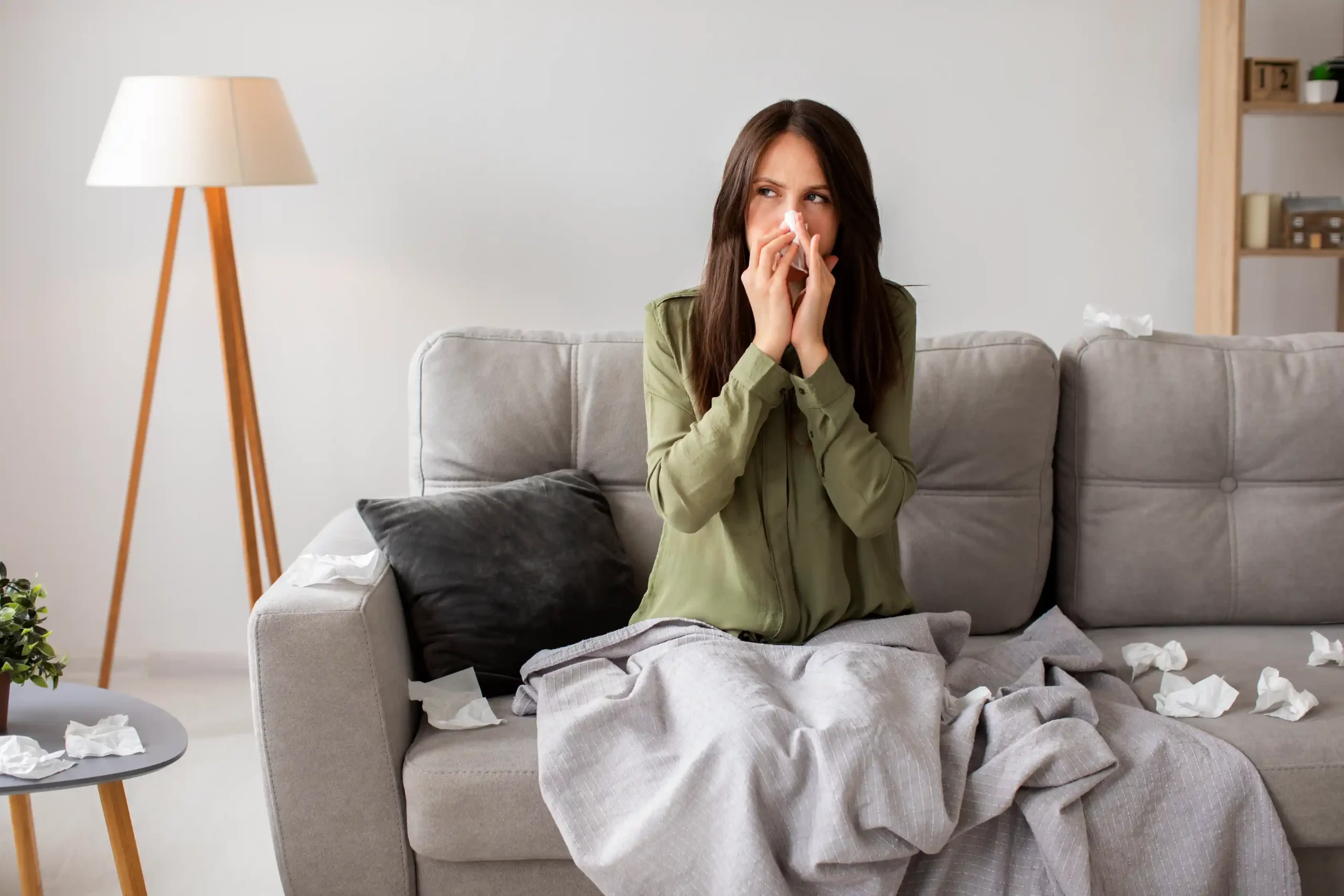
Keep The Bathrooms Clean and Tidy:
Bathrooms are a haven for mold and germs, which can cause allergies. Regularly scrub the shower, bathtub, toilet, and sink with appropriate cleaning chemicals to prevent allergy buildup.
Clean The Kitchen Equipments:
Kitchen equipment such as the stove, microwave and toaster can accumulate grease, food particles and moisture. Clean these equipment on a regular basis to prevent mould growth and allergy release.
Wash Reusable Shopping Bags:
To prevent allergies, make sure to wash your reusable shopping bags regularly to eliminate any built-up dirt, pollen, or food residues that could act as triggers.
Sanitize Dish Sponges:
Sponges trap bacteria and mold, leading to allergic reactions. After each use, make sure to rinse them thoroughly, and regularly sanitize by either microwaving a damp sponge for 1-2 minutes or running it through the dishwasher.
By following these cleaning tips and strategies, you can maintain a healthy, allergy-free home. If you find any of these tips difficult to put into action yourself, there are cleaning services available that can help you.
VV Maids, a house cleaning and office cleaning company that offers its services in and near Commack, NY, understands the importance of an allergen-free home and is always ready to help its clients achieve an allergy-free residence. Our team of experienced professionals is equipped with the necessary tools and expertise to tackle even the hardest cleaning challenges. Don’t hesitate to contact us now and book a service!
Why is allergy-proofing important?
Allergy-proofing your house is vital because it creates a safe and comfortable living environment for those who have allergies. It can considerably lower allergen levels, decrease symptoms, and improve general well-being. It also helps avoid allergic reactions and other health issues by limiting exposure to allergens.
Which areas of the house should I focus on when allergy-proofing?
Bedrooms: Because we spend so much time in our bedrooms, it’s important to make them clean and allergen-free.
Carpets: Rugs and carpets may contain dust mites and other allergens, so consider getting rid of them or replacing them with low-pile ones that are easier to clean.
Bathrooms: Keep molds away by washing bathroom surfaces on a regular basis.
Are there specific cleaning products I should use?
To avoid causing allergies, use hypoallergenic cleaning products without scent or use their natural alternatives such as vinegar and baking soda.
How often should I vacuum and dust my home?
To effectively reduce allergens, aim to vacuum carpets, rugs, upholstery, and curtains at least weekly. Dust surfaces using a wet microfiber cloth to trap dust particles effectively.
